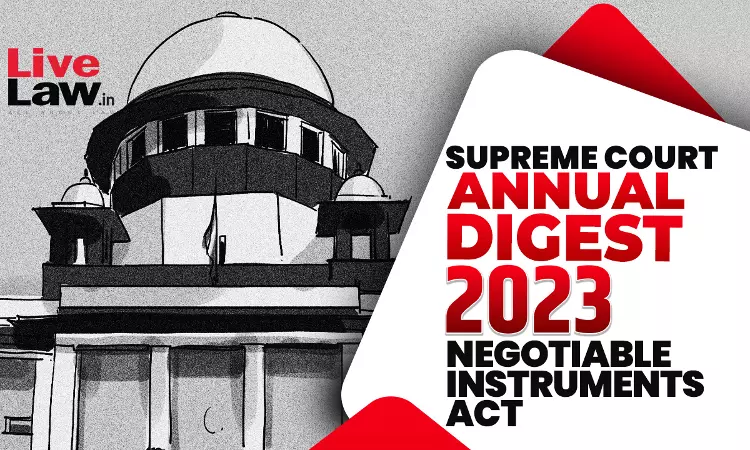Supreme Court Annual Digest 2023- Negotiable Instruments Act
LIVELAW NEWS NETWORK
21 Jan 2024 10:59 AM IST

Next Story
21 Jan 2024 10:59 AM IST
Negotiable Instruments Act 1881 - Section 138, 147 - The nature of offence under section 138 of the N.I Act is primarily related to a civil wrong and is a compoundable offence. (Para 10) 2023 LiveLaw (SC) 75Negotiable Instruments Act 1881; Section 138 - Approval of resolution plan of corporate debtor will not extinguish the liability of erstwhile director for dishonour of cheque. (Para 17,...
